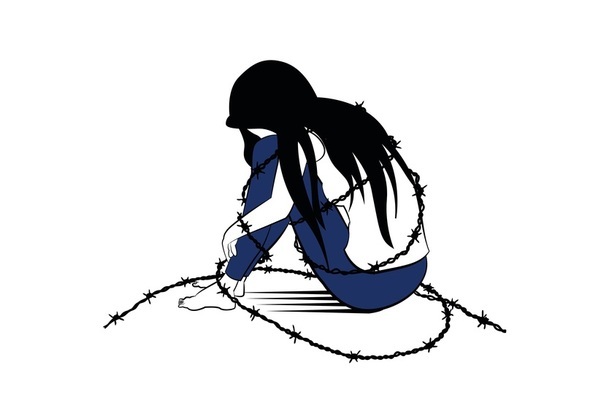
Have you ever wondered what it will be the most common regret in people who are about to die ?
Bronnie Ware, a palliative care nurse, observed through her work that the conversations she had with her terminally ill patients, that their regrets had certain similarities. Let’s see what these ideas that appeared when looking at one’s life in retrospect consisted of.
Wisdom to squeeze life to the fullest
People who were very close to reaching the end of their lives generally regretted the same things. Given this discovery, Bronnie decided to write down the confessions that her patients made to her. In fact, one of the factors that inspired her to carry out this task was the explicit request of certain patients.
In general, these patients wanted their stories to be told, for their regrets not to go unnoticed, and for them to help others. For them, talking to their nurse was the last chance they had to leave their legacy to the world: the wisdom that life had reserved for them for the end.
Some time later, Bronnie would publish this valuable information on her blog, which in turn would become so popular that it would become the book The Five Commandments to Have a Full Life. However, its original title is much more powerful: Top Five Regrets of The Dying, or The 5 Great Regrets of Dying People. The author develops, along with her own experiences, each of the 5 most relevant regrets in the book.
The most frequent regrets just before dying
Below you can see what are the things that people regret right before they die.
1. I wish I had the courage to live the life I wanted and not the one others expected of me
The expectations that others place on us At times, they can be suffocating. It is normal to want to please other members of the family and society in general, but our efforts and decisions cannot be influenced solely by this.
2. I wish I hadn’t worked so hard
Work is also essential to survive, but that does not mean that we should make it a speculative activity. Many people are prisoners of the need to protect their future by providing themselves with a very important economic cushion, while at the same time they fall into a lifestyle based on consumerism, full of habits that make constant work necessary.
3. I would have liked to express my feelings
Life in the West leads us to hide our feelings, usually due to a mix between exaltation of rationality and the need not to engage in strident behavior that affects our professional lives.
4. I would have liked to keep in touch with my friends
There are many things that can lead us to undervalue friendship. But, in particular, the lack of time due to work is something that greatly influences this aspect.
5. I wish I had given myself permission to be happier
Sabotaging oneself is common, if only because, in order not to leave our comfort zone, we prefer to postpone again and again what would make us happy.
Even regret is valuable
Although the regrets described by Bronnie sound simple, in reality, they run very deep. Reason and logic let us know that life is finite However, many times we act as if this were not the case, as if we had all the time in the world. That is, when we enjoy youth and well-being, we unconsciously believe that things will always remain this way.
That can result in us postponing our dreams or that we underestimate the true value that simple things bring us and prioritize others that, at the end of our life, will not be so important.
Examples abound. Not expressing our emotions, maintaining a relationship for fear of being alone, neglecting friendships and meaningful relationships because of being in a demanding or unsatisfactory job, not practicing that hobby that we have always found interesting… and a long etcetera, can cause us painful regrets in the future.
But knowing the 5 regrets of the dying brings with it an optimistic message of hope. Bronnie Ware gave a voice to her patients and tells us strong and honest stories to lead us to reflection.
Learn from mistakes made
The most common regrets may be our teacher and not our destiny. It is up to each person to live in an intentional way, in which each decision we make corresponds to something that brings us closer to our goals or, simply, that causes us joy.
Yes, it is true that life will end someday and it is also true that we will inevitably make some mistakes. But today, that we are here, we can honor our dreams, fight for our true goals and enjoy the relationships we have created with other people.
If you identify with any of the 5 points, remember that life is shaped by the decisions we make and read the 5 biggest regrets of dying people can help us evaluate our decisions and make the changes we consider necessary. It is totally valid to change the direction taken. Let us not reach the end of our life to realize that we missed living it.
We can all be part of another group of people, those people who, on their deathbed, are at peace with their decisions, actions and memories.








